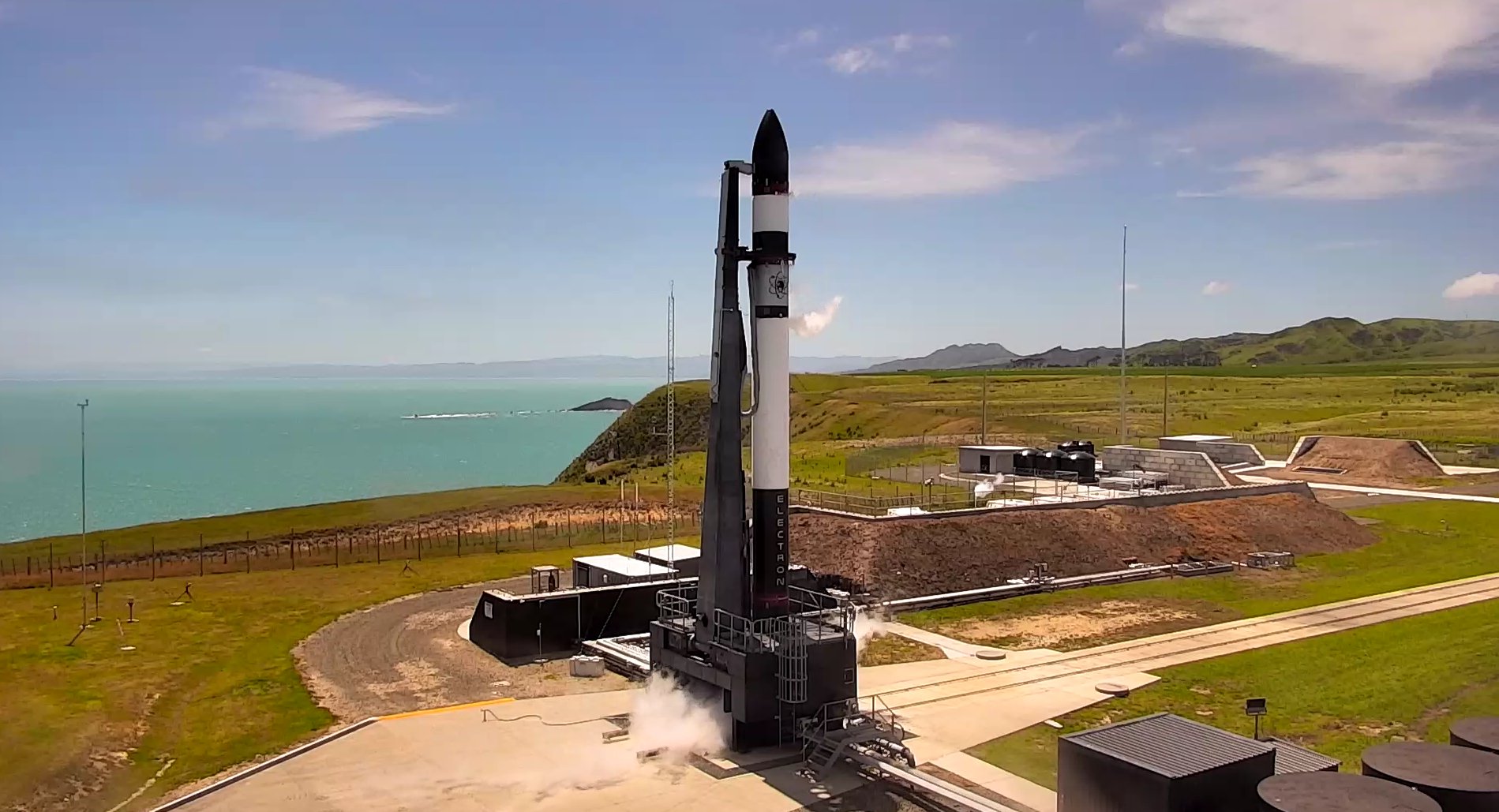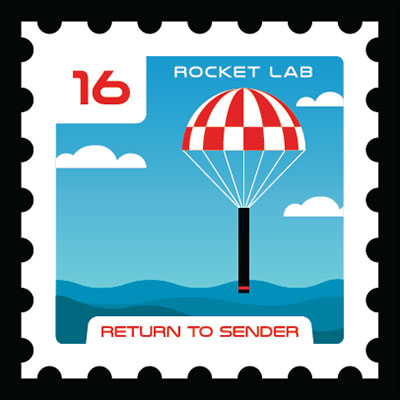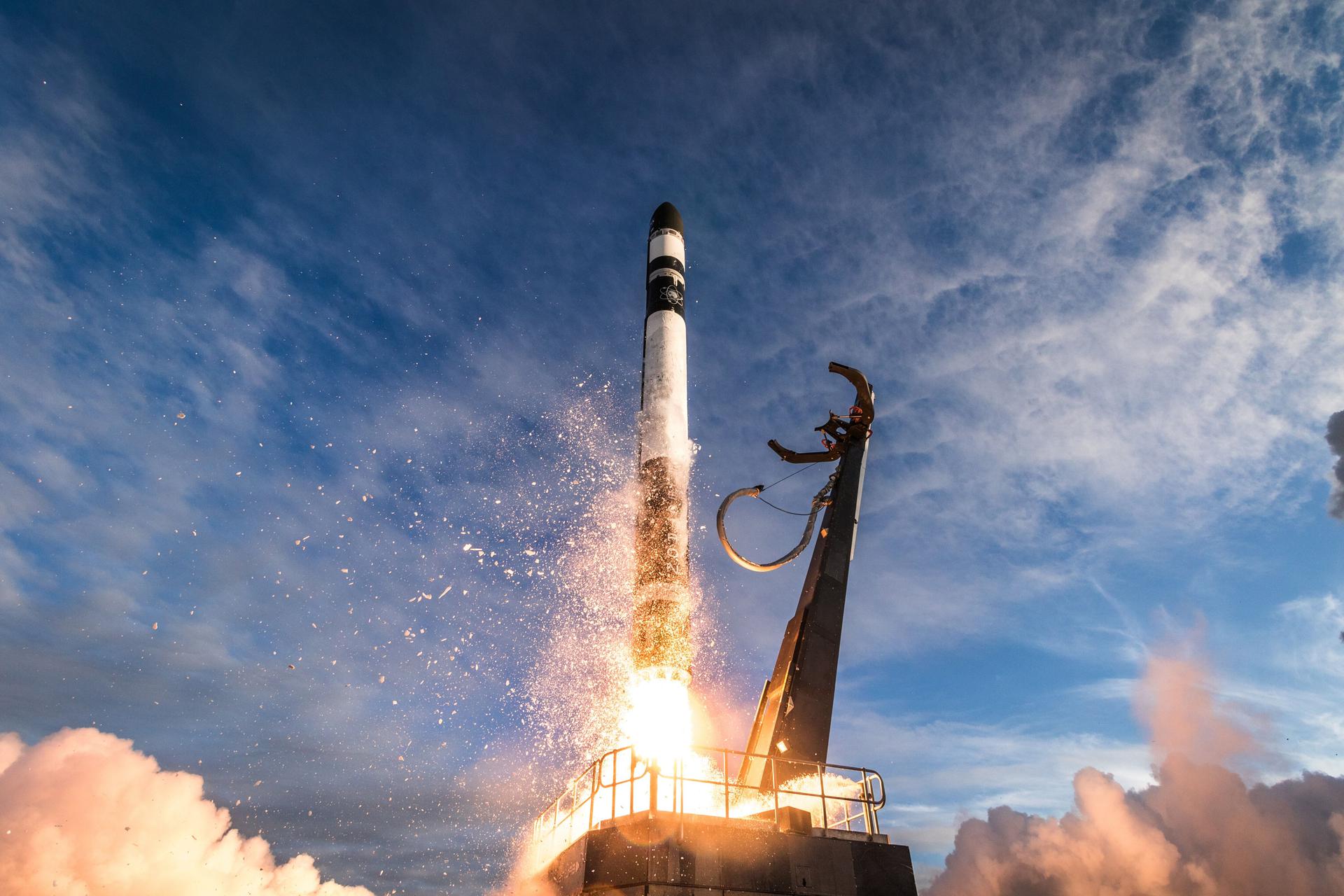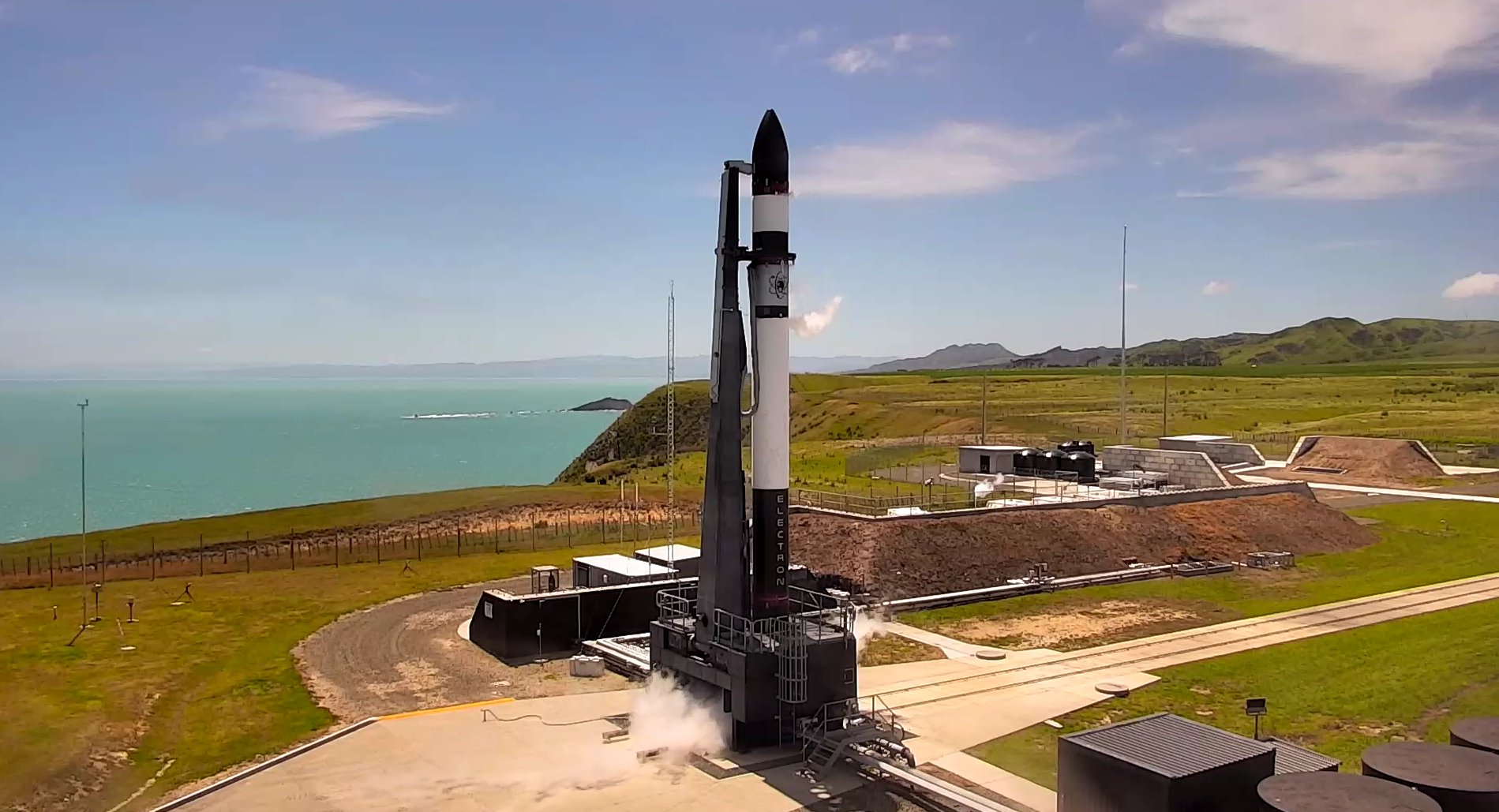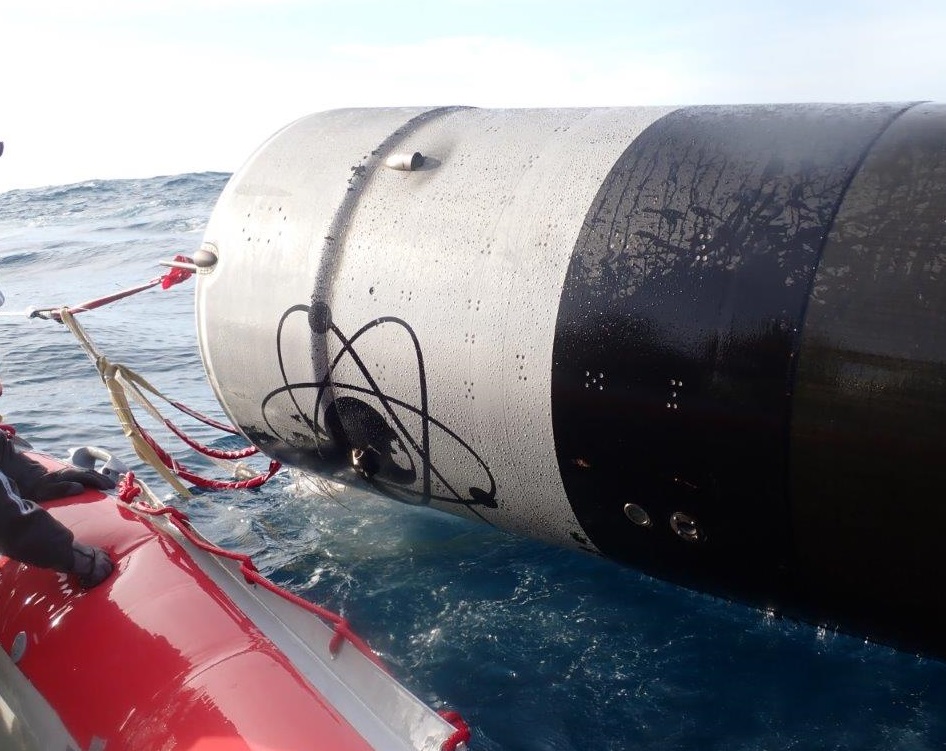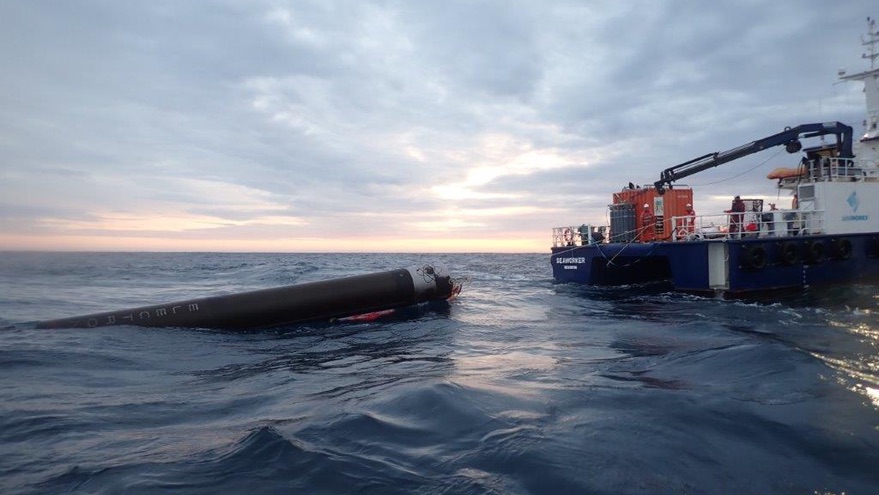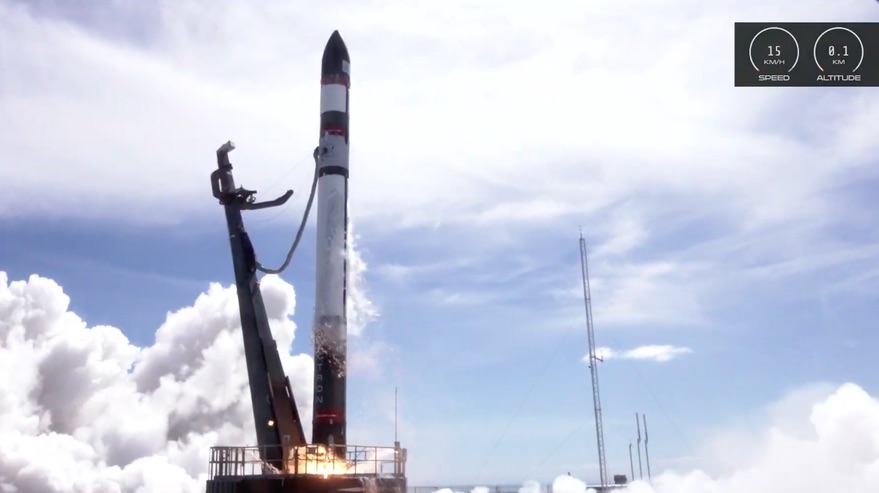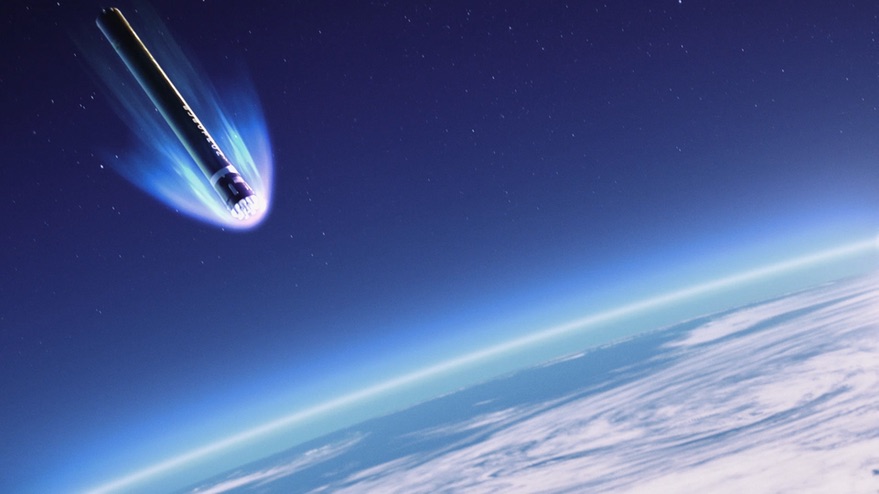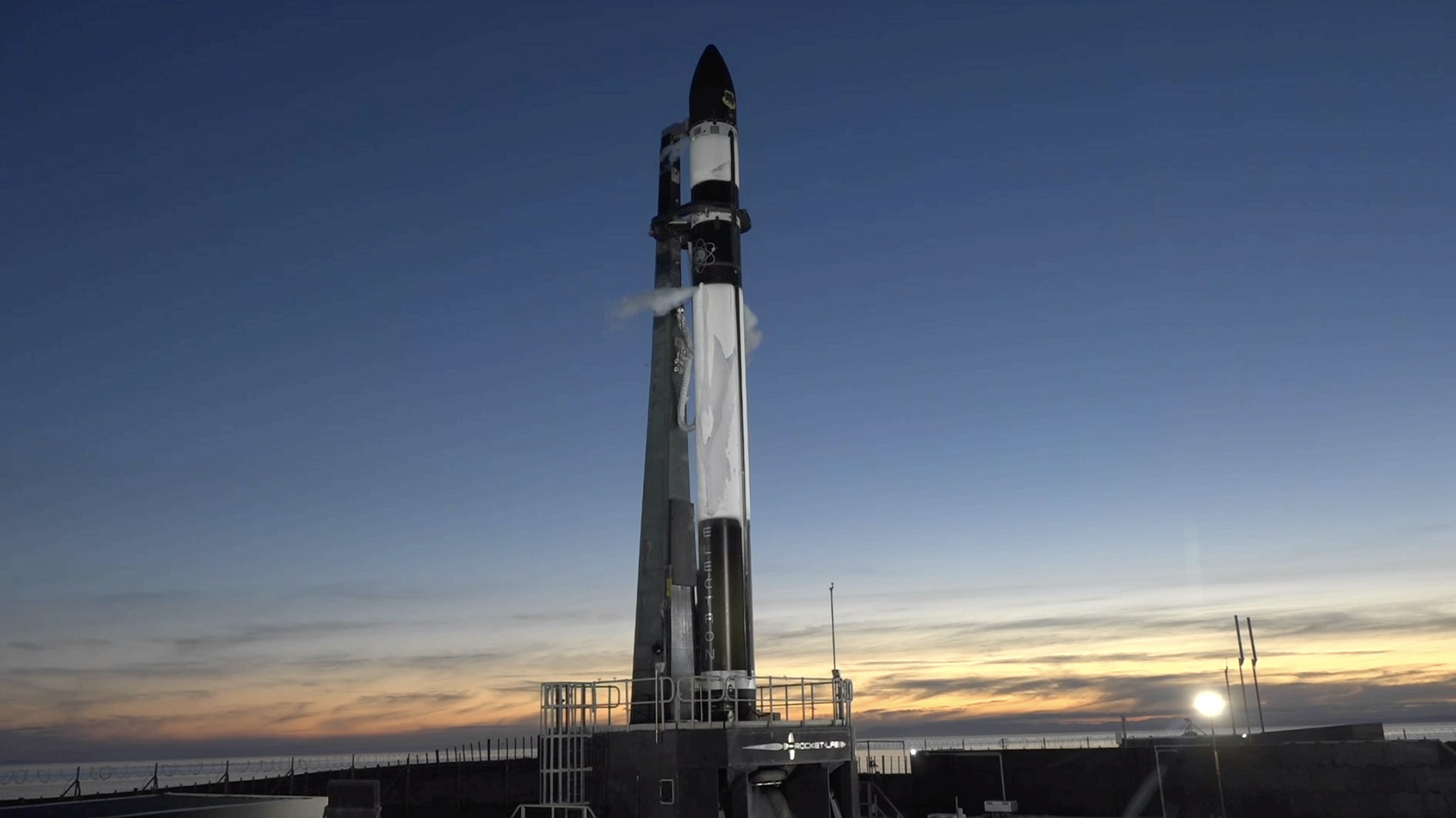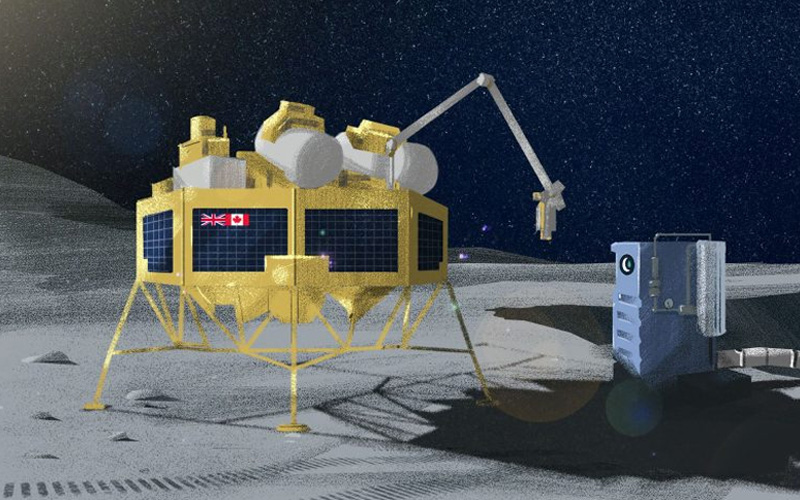Electron | Return to Sender
Rocket Lab Launch Complex 1A
Onenui Station, Mahia Peninsula, New Zealand
T?
--
Days
:
--
Hours
:
--
Mins
:
--
Secs
Date Loading...
Rocket Lab
Rocket Lab is an American aerospace manufacturer with a wholly owned New Zealand subsidiary. The company develops lightweight, cost-effective commercial rocket launch services. The Electron Program was founded on the premise that small payloads such as CubeSats require dedicated small launch vehicles and flexibility not currently offered by traditional rocket systems. Its rocket, the Electron, is a light-weight rocket and is now operating commercially. The company is also producing a variety of spacecrafts and spacecrafts components.
Return to Sender
"Return to Sender" will loft 30 satellites to a sun-synchronous orbit at 500 km altitude for a range of customers, including TriSept, Unseenlabs, Swarm, Te Pūnaha Ātea - Auckland Space Institute, and global gaming software company Valve. The satellites span a range of operations, from TriSept’s tech demonstration of new tether systems designed to accelerate spacecraft reentry and reduce orbital debris, through to the next generation of maritime surveillance satellites for Unseenlabs, as well as communications satellites for Swarm. The mission will also deploy New Zealand’s first student-built satellite, the APSS-1 satellite for Te Pūnaha Ātea - Auckland Space Institute at The University of Auckland. The DRAGRACER mission will test the effectiveness of new tether technologies designed to accelerate spacecraft reentry and reduce orbital debris at the conclusion of space missions. TriSept has completed the integration of a pair of qualified Millennium Space Systems 6U small satellites, one featuring the tether drag device and one without. The controlled spacecraft should deorbit in approximately 45 days, while the second spacecraft is expected to remain in orbit for seven to nine years. BRO-2 and BRO-3 are the second and third satellites in French company Unseenlabs’ planned constellation of about 20 satellites dedicated to maritime surveillance. Swarm will launch the latest 24 1/4U SpaceBEE satellites to continue building out its planned constellation of 150 satellites to provide affordable satellite communications services to IoT devices in remote regions around the world. The student-built Waka Āmiorangi Aotearoa APSS-1 satellite is designed to monitor electrical activity in Earth’s upper atmosphere to test whether ionospheric disturbances can predict earthquakes. Extra payload on this flight is a 150 mm 3D printed Half-Life Gnome Chompski. Created for Valve Software's co-founder Gabe Newell by design studio Weta Workshop, it serves as an homage to the innovation and creativity of gamers worldwide, and also aims to test and qualify a novel 3D printing technique that could be employed for future spacecraft components. Gnome will remain attached to the Kick Stage and will burn up on reentry. Besides payloads, this flight will also serve as a test of Electron's reusability. Rocket Lab will attempt to bring Electron’s first stage back to Earth under a parachute system for a controlled water landing before collection by a recovery vessel.
Electron
Height 18.00 Meters
Max Stages 3
Mass To GTO 0 kg
Liftoff Thrust 162 kN
Diameter 1.20 Meters
Mass To LEO 300 kg
Liftoff Mass 13 Tonnes
Launch Success 46
Consecutive Success 9
Maiden Flight 2017-05-25
Launch Failures 4
Core
Serial 16
Status retired
Flight Proven Yes
Flights 1
Landing Attempt Yes
Landing Success Yes
Type PL
Location PAC
Updates
scottm3
2020-11-20T04:17:37+0000
Successful launch via Peter Beck Twitter Set to success
scottm3
2020-11-20T01:32:45+0000
T-0 set to 02:20 UTC
SwGustav
2020-11-19T21:52:27+0000
weather 85% adjusting T-0
SwGustav
2020-11-18T22:58:15+0000
added the webcast
SwGustav
2020-11-17T20:43:09+0000
delayed by 1 day due to weather
scottm3
2020-11-15T06:46:20+0000
Now targeting UTC: 01:44, Nov 19
spacevogel
2020-11-14T19:32:37+0000
Launch pushed to NET Nov 19
Nosu
2020-11-11T22:35:07+0000
Another test. Please ignore.
Nosu
2020-11-11T22:04:00+0000
This is a test of the new LL2 webhook. Feel free to ignore.
Related News
2020-12-01T11:30:05+0000
Arstechnica
Rocket Lab says recovered booster in “good condition,” some parts will re-fly
2020-11-24T11:55:36+0000
SpaceNews
Rocket Lab declares success in Electron rocket recovery
2020-11-20T09:35:36+0000
Spaceflight Now
Rocket Lab recovers booster after launch with 30 small satellites
2020-11-19T20:53:58+0000
NASASpaceflight
Rocket Lab, raising money for children’s hospital, will attempt first stage recovery
2020-11-19T03:45:35+0000
SpaceNews
Rocket Lab launches Electron in test of booster recovery
2020-11-05T19:04:10+0000
SpaceNews
Rocket Lab to attempt Electron stage recovery on next launch
2020-11-05T19:00:07+0000
Arstechnica
Rocket Lab is about to attempt a first-stage recovery
2020-11-04T06:46:56+0000
Spaceflight Now
